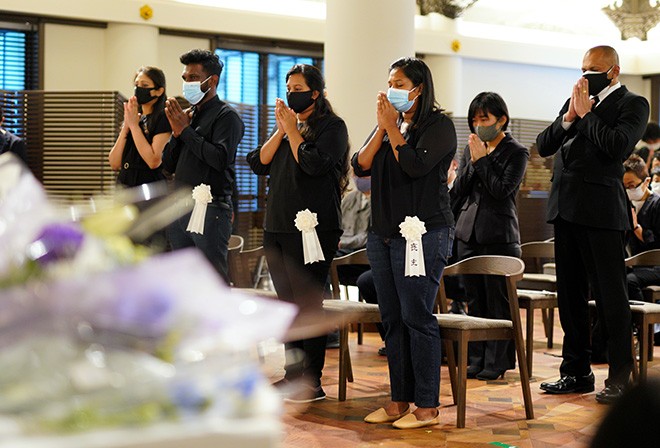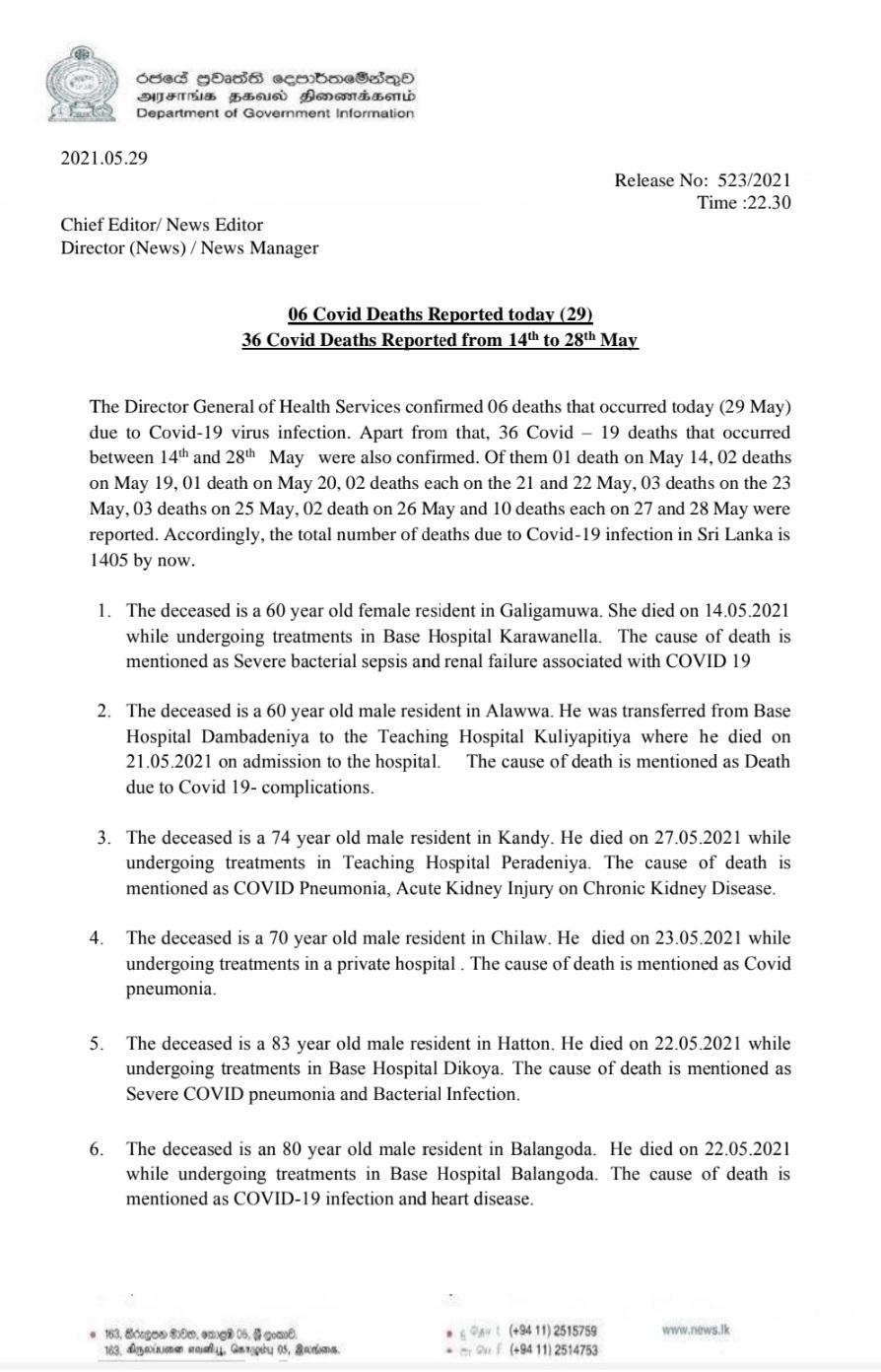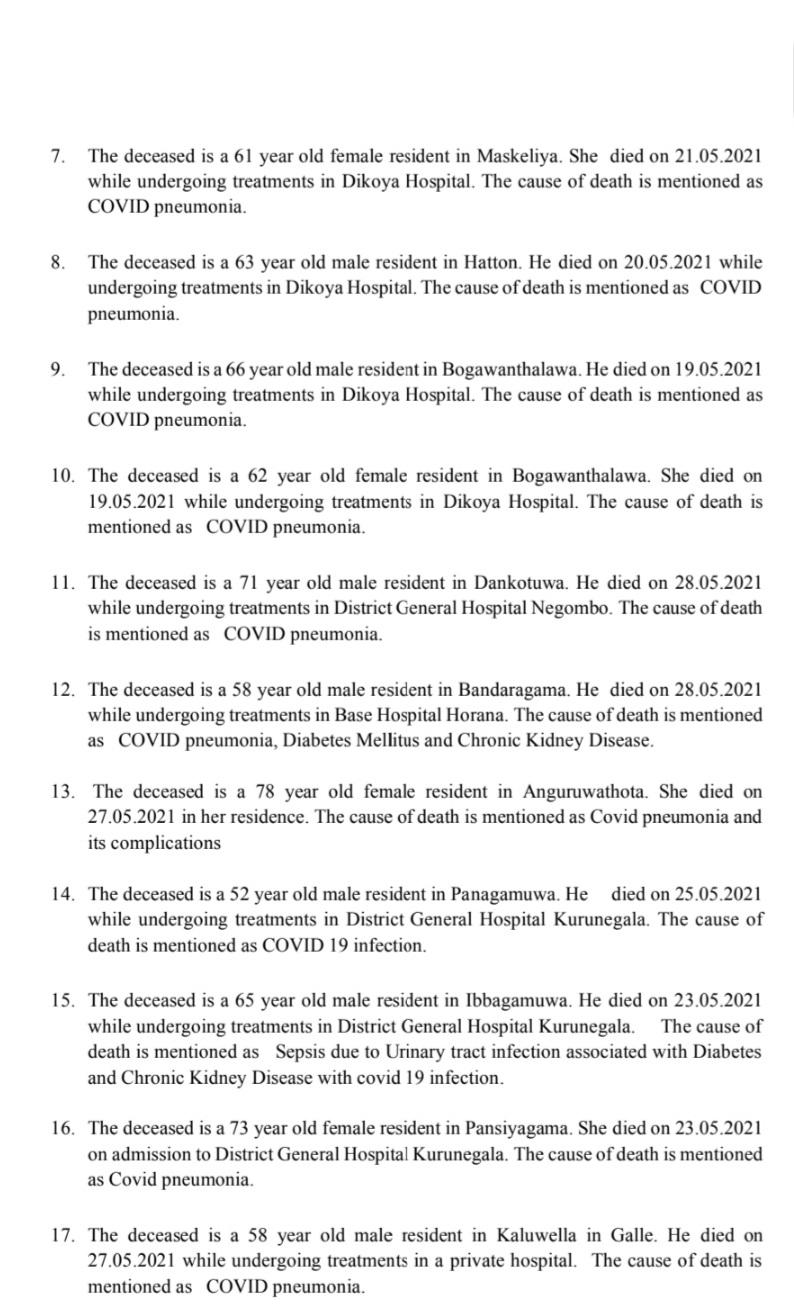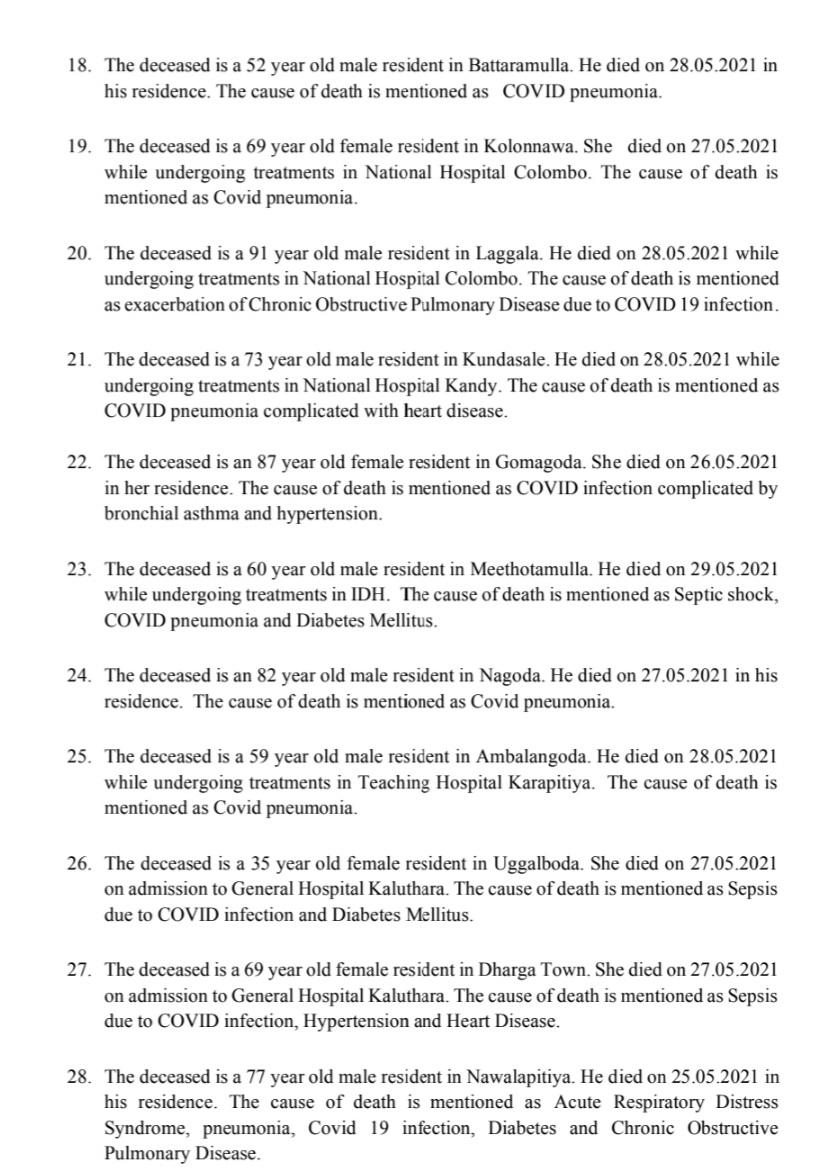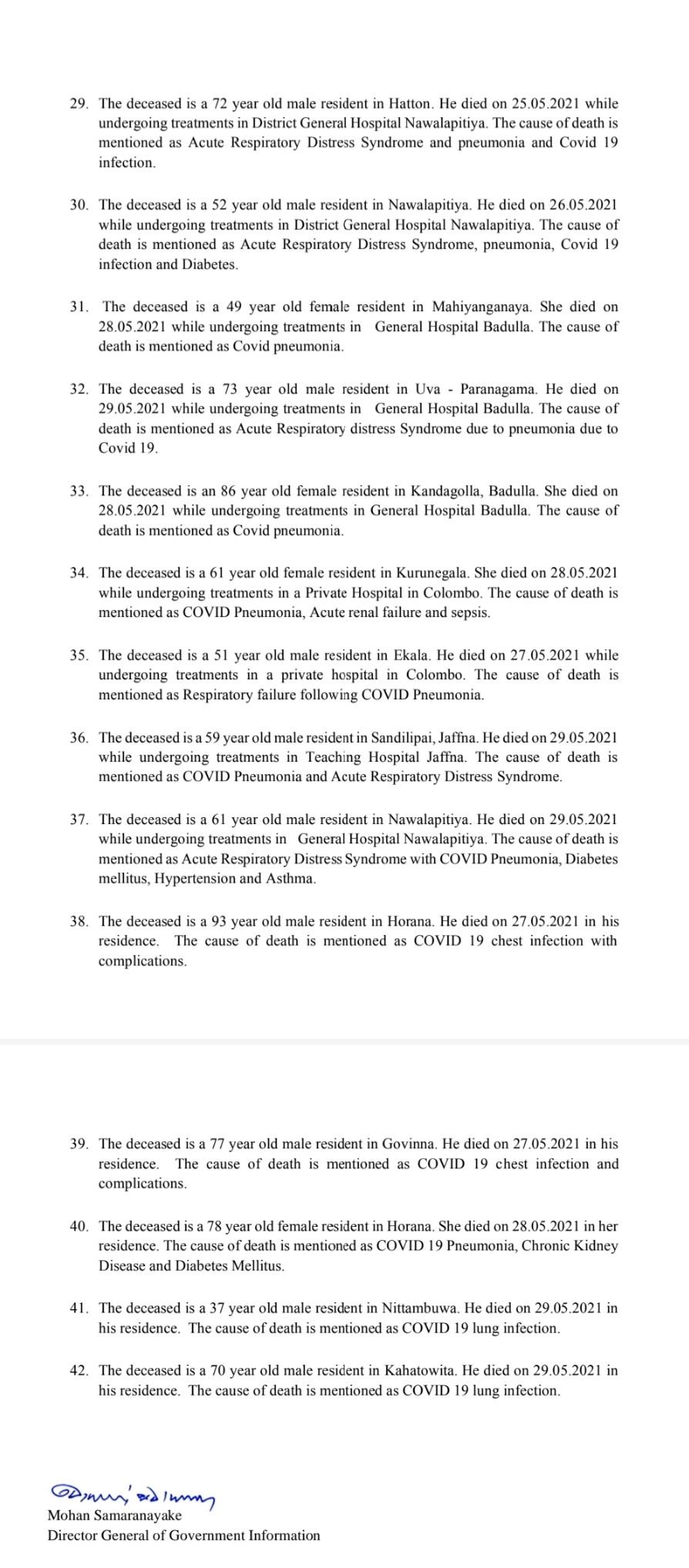KAMALIKA PIERIS
The government of Sri Lanka
soundly defeated the LTTE on May 18. 2009. Eelam War IV ended in victory for the government of
Sri Lanka. LTTE accepted defeat and formally surrendered to the army. [1] It
was a decisive victory and a hard fought one.
This victory is Sri Lanka finest
post-independence achievement, said analysts.
A secessionist movement was defeated after a protracted war of 30 years.
It stands in stark contrast to the conflicts fought by well-funded Western
forces in Iraq and Afghanistan over the last decade. This victory is
therefore unique in this
century.
It was my
singular privilege, said Mahinda Rajapaksa to have been the Commander in Chief
of the Sri Lankan armed forces at the time of its greatest achievement in
defeating LTTE terrorism. This is an achievement that will lie to the credit of
the Sri Lankan armed forces not only locally but internationally as well, for
decades to come.
Until we
actually defeated them, very few people thought that was possible. Foreign representatives who met me at that
time, told me not to try to do the impossible. The lesson that we all have to
learn from this is that nothing is impossible if you have confidence in
yourself and are willing to take risks.
In the first three Eelam wars, Sri Lanka succumbed to international
pressure and the military offensive
was stopped when the army was about to win. The first instance was Vadamarachchi
in 1987 when JR Jayewardene was President. But
Mahinda Rajapaksa refused to do this in 2009. President Rajapakse firmly stated that he was not going
to stop the war.
They were
going to fight to the finish. Nothing short of unconditional surrender could
save the LTTE. The UN was not needed.
LTTE could contact the President through the International Committee of the Red
Cross (ICRC) if it wished. CA Chandraprema observed later, that
in Sri Lanka every battle whether it is terrorists, the Supreme Court, or
foreign powers, is fought to the finish.
When
they saw that Sri Lanka was winning, western countries, led by the EU made five
attempts to table a resolution against Sri Lanka at the UN Security Council.
China and Russia vetoed this on all five occasions.
However, on
May 13. 2009, five days before the war ended, Security Council issued a press
statement .The press statement said,the
members of the Security Council express grave concern over the worsening
humanitarian crisis in north-east Sri Lanka, in particular the reports of
hundreds of civilian casualties in recent days, and call for urgent action by
all parties to ensure the safety of civilians.
The members
of the Security Council strongly condemn the Liberation Tigers of Tamil Eelam
(LTTE) for its acts of terrorism over many years, and for its continued use of
civilians as human shields, and acknowledge the legitimate right of the
Government of Sri Lanka to combat terrorism.
The members
of the Security Council demand that the LTTE lay down its arms and allow the
tens of thousands of civilians still in the conflict zone to leave. The members
of the Security Council express deep concern at the reports of continued use of
heavy calibre weapons in areas with high concentrations of civilians, and
expect the Government of Sri Lanka to fulfil its commitment in this regard.
The members
of the Security Council demand that all parties respect their obligations under
international humanitarian law. The members of the Security Council call on the
Government of Sri Lanka to take the further necessary steps to facilitate the
evacuation of the trapped civilians and the urgent delivery of humanitarian
assistance to them.
The members
of the Security Council take note of the steps taken by the Government of Sri
Lanka to address the humanitarian situation of displaced persons and call on
the Government of Sri Lanka to ensure the security of those displaced by the
conflict and to cooperate with the United Nations, the International Committee
of the Red Cross (ICRC), and other international humanitarian organizations in
providing humanitarian relief and access to them as soon as they leave the
conflict zone.
The members
of the Security Council reiterate support for the personal involvement of the
UN Secretary General and urge the Government of Sri Lanka to extend full
cooperation to the United Nations in order to resolve the humanitarian crisis.
The members
of the Security Council, mindful of the necessity to find a long-term solution
without the threat of violence, underline that the needs of all communities in
Sri Lanka have to be addressed. (End of statement. )
Supported by this statement, UN Secretary
General Ban Ki Moon arrived in Sri Lanka on 23rd May 2009. He spoke with the President and senior
officials. He also ‘consulted other relevant stakeholders, members of
international humanitarian agencies and civil society. The
Secretary-General visited the internally displaced persons (IDP) sites at
Vavuniya and overflew the conflict area, near Mullaitivu that was the scene of
the conflict.’
President
Mahinda Rajapaksa and Secretary General Ban Ki Moon then issued a joint
statement. Rajiva Wijesinha said later that he had thought the joint statement might
be used against Sri Lanka, specially the clause to address international
concerns. Mahinda Rajapaksa had been warned but had signed anyway, thinking it
an innocuous reference, said Rajiva.
Foreign
Minister Dinesh Gunawardena in Parliament in 2020 stated firmly that this statement
was only a joint statement, not an agreement .No agreement had been signed by
President and UN Secretary General. They had issued a joint statement which was
now being dubbed as an agreement.
This
joint statement did not make any reference
to the praiseworthy victory of the government of Sri Lanka. Sri Lanka was not
congratulated on it. Instead, the statement spoke, inter alia, of violations of
international humanitarian and human rights law.
Following is the
joint statement by the Government of Sri Lanka and the United Nations at the
conclusion of UN Secretary-General Ban Ki-moon’s visit to Sri Lanka on 23 May
2009:
- At
the invitation of Mahinda Rajapaksa, President of Sri Lanka, the
Secretary-General of the United Nations, Ban Ki-moon, paid a visit to Sri
Lanka. During the course of his visit, he held talks with the President,
Foreign Minister as well as other senior leaders of Sri Lanka. During his
stay, he also consulted other relevant stakeholders, members of international
humanitarian agencies and civil society. The Secretary-General visited
the internally displaced persons (IDP) sites at Vavuniya and overflew the
conflict area, near Mullaitivu that was the scene of the conflict.
- President
Rajapaksa and Secretary-General Ban Ki-moon agreed that following the end of
operations against the Liberation Tigers of Tamil Eelam (LTTE), Sri Lanka had
entered a new post-conflict beginning. In this context, the Government of
Sri Lanka faced many immediate and long-term challenges relating to issues of
relief, rehabilitation, resettlement and reconciliation. While addressing
these critical issues, it was agreed that the new situation offered
opportunities for long-term development of the north and for re-establishing
democratic institutions and electoral politics after 2 ½ decades. The
Government expressed its commitment to ensure the economic and political
empowerment of the people of the north through its programmes.
- The
Secretary-General welcomed the announcement by the Government expressing its
intention to dismantle the welfare villages at the earliest, as outlined in the
Plan to resettle the bulk of IDPs and call for its early
implementation.
- President
Rajapaksa informed the Secretary-General regarding ongoing initiatives relating
to rehabilitation and reintegration of ex-combatants. In addition to the
ongoing work by the Office of the Commissioner General for Rehabilitation, a
National Framework for the Integration of Ex-combatants into Civilian Life is
under preparation, with the assistance of the United Nations and other
international organizations.
- Sri
Lanka reiterated its strongest commitment to the promotion and protection of
human rights, in keeping with international human rights standards and Sri
Lanka’s international obligations. The Secretary-General underlined the
importance of an accountability process for addressing violations of
international humanitarian and human rights law. The Government will take
measures to address those grievances.
Then in June,
2010 Ban Ki Moon appointed a three-member Panel of Experts to advise him on the issue of accountability with regard
to any alleged
violations of international
human rights and humanitarian law during the
final stages of the Sri Lankan Civil War.
The Panel would report directly to Secretary General.
The panel
comprised of Marzuki Darusman, a former Attorney General of Indonesia, Yasmin
Sooka, a high court judge from South Africa and Steven R. Ratner an American
Professor of Law. The Sri Lankan government reacted angrily this panel, calling
it an unwarranted and unnecessary interference with a sovereign nation”. The
Panel was not allowed to enter Sri Lanka. Sri Lanka government refused to allow
them into the country and refused to talk to them.
Their Report ,
known formally as the Report of the Secretary-General’s Panel of Experts
on Accountability in Sri Lanka” is
popularly known as ‘Darusman report’ or ‘PoE report. This report should
have been confidential but it was published
in 2011.
Sri Lanka rejected the Report. The Government of Sri Lanka said it does not
consider the Darusman Report as a UN document, as it has not been mandated by
the UN. The document is the product of a personal initiative taken by the
Secretary-General. However, the Report
was eagerly picked up by the UN Office for Human Rights,
its High Commissioner and by those NGOs set up to support Tamil Separatist
Movement .They ran to the UNHCR with it.
The Secretary
General presented the report to Security Council, though the report did not
have a Security Council mandate. It was
not welcomed by China and Russia. Russia
objected, saying that it was not a UN report. It was not done in
accordance with the regulations and the procedures of the UN. The report was a private one for the
Secretary General
The Russian ambassador
to Sri Lanka told the media (Sunday Times) in May 2011 that Russia had oppose
the project from the start. When the panel
was appointed Russia had issued a statement saying that ‘the UN Secretary
General as Chief Administrative officer of the UN should have asked the opinion
of the Security Council or the General Assembly before embarking on this
project.”
From the very
beginning we were skeptical of the panel, the Ambassador said. We were assured
by the Secretary General and his staff that this was not a fact finding
mission, the task was not to investigate but only to
advise the Secretary General. But what we saw later was very different.
Russia also
opposed the publication of the report and heavily criticized its content. To
describe the last stages of the war as a ‘tragedy ‘cannot be accepted. For whom
was it a tragedy? The end of the war should be welcomed by the international
community. To describe the LTTE as a highly disciplined nationalist group of
Tamils and not a terrorist group is unacceptable,
Allegations are
made against the government of Sri Lanka. The allegations are not proved. The Report
says the conclusions were made based on the evidence of individuals and groups
that were considered ‘reliable’ by the panel itself which means they were
choosing who was reliable and who was not.
There are too
many questions about the Report. The authors of the report were far from
objective. The report cannot be grounds for any further action. Russia will
oppose any such attempt at the UNSC, concluded the ambassador.
Critics point
out that the Secretary General cannot intervene in the internal affairs of member countries. Section 7 of the
UN Charter says Nothing contained in the present Charter shall authorize the
United Nations to intervene in matters which are essentially within the
domestic jurisdiction of any state or shall require the Members to submit such
matters to settlement under the present Charter; but this principle shall not
prejudice the application of enforcement measures under Chapter Vll.”
It is the Security Council, not Secretary General that
is granted powers of intervention under Chapter VII. This
Chapter too, supports the right of a country to protect itself. Article 51
speaks of the inherent right of self-defense of a member state.
The post of
Secretary General is not as powerful as
people seem to think it is, said analysts. The Secretary General of the UN is
not equal in rank to a Head of State. He is subservient to the Heads of state and ambassadors
accredited to the UN, said Thalif Deen. He is simply the CEO of the UN.
When told that the Secretary General had
banned smoking in the UN building, Russia’s foreign minister Lavrov lit a cigarette
and replied that this building does not belong to the Secretary General it
belongs to the member states. The Nigerian
ambassador said the Secretary General is not my boss, I am his boss, reported
Thalif Deen.
Article 100 of the UN
Charter says in the performance of their
duties the Secretary-General and the staff shall not seek or receive
instructions from any government or from any other authority external to the
Organization. But today, it is difficult
for the Secretary
General to follow this.
Instead of keeping the UN as
a skeleton organization servicing the
needs of member states and acting as a meeting place for them, the western
powers have piled more and more tasks on the UN system and then funded these
activities, creating a great dependency on them to keep the system going.
The UN now depends on ten to 15 western
countries, for funds and these countries have turned this
dependency to a handle to make the UN further their foreign policies, said
analysts. They use their money to make the UN system do as they wish. There
is at least one document that admits that this distorts the priorities of the
UN system.
In order to retain their jobs the
UN officials, starting from the UN Secretary General , have to please these
donors. The Secretary
General plays a subservient role to the big powers, but asserts his authority to
the rest of the member states, said
Thalif Deen .
While all member states in the UN
rank equally in the UN, the money
contribution to the UN varies. Some countries pay large amounts. The dominant country in the UN is at present
the USA. It is the largest donor to the United Nations,
contributing $10 billion in 2018,
slightly less than one-fifth of the
total budget.
USA does not want a strong independent Secretary-General. Boutros Boutros Ghali, Secretary-General
from 1992 to December 1996 was denied a second term due to a US veto. He
had 14 of 15 votes. Ghali wrote a book where he gave an insider’s view of how
the UN and it s Secretary-General were manipulated
by the USA. He said US Secretary of
State, Madeline Albright demolished Ghali’s authority in the UN and
tarnished his image with a smiling face and expressing admiration. ( Continued)
[1] https://www.reuters.com/article/us-srilanka-war/sri-lankas-long-war-reaches-climax-tigers-concede-idUSTRE54D1GR20090517
We have decided to silence our guns,” statement, posted on the www.TamilNet web
site. May 17.2009
